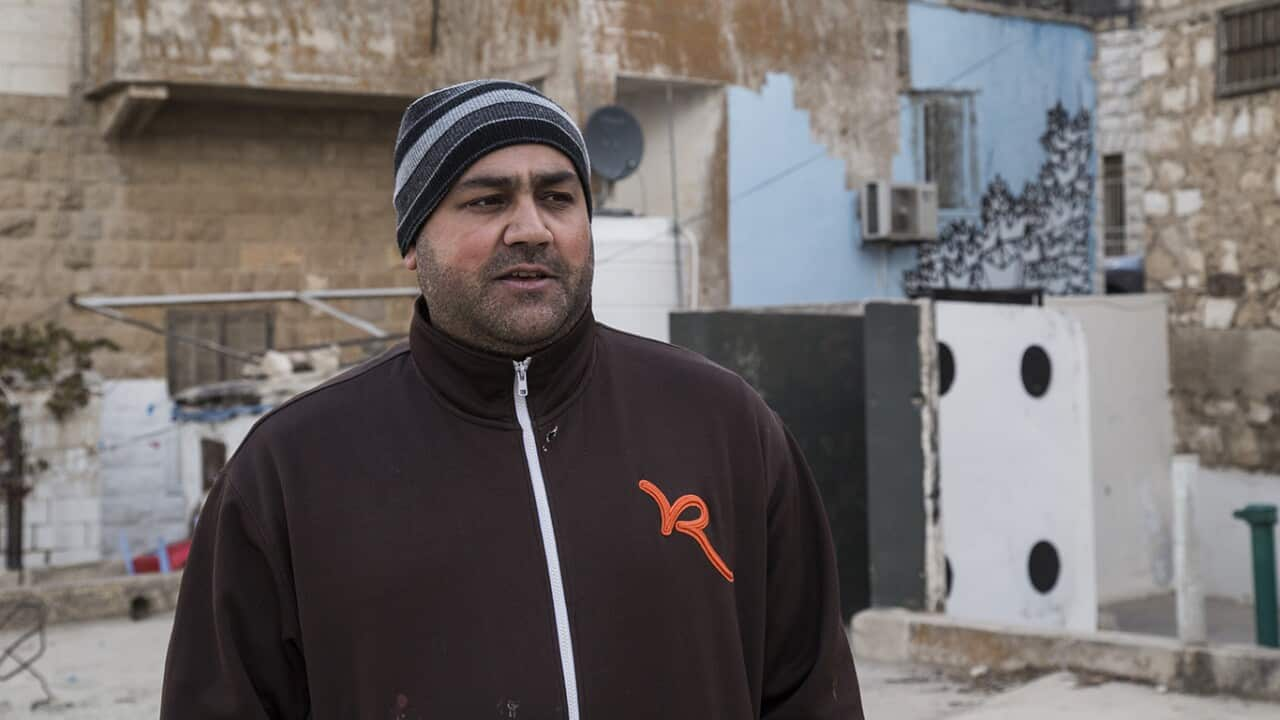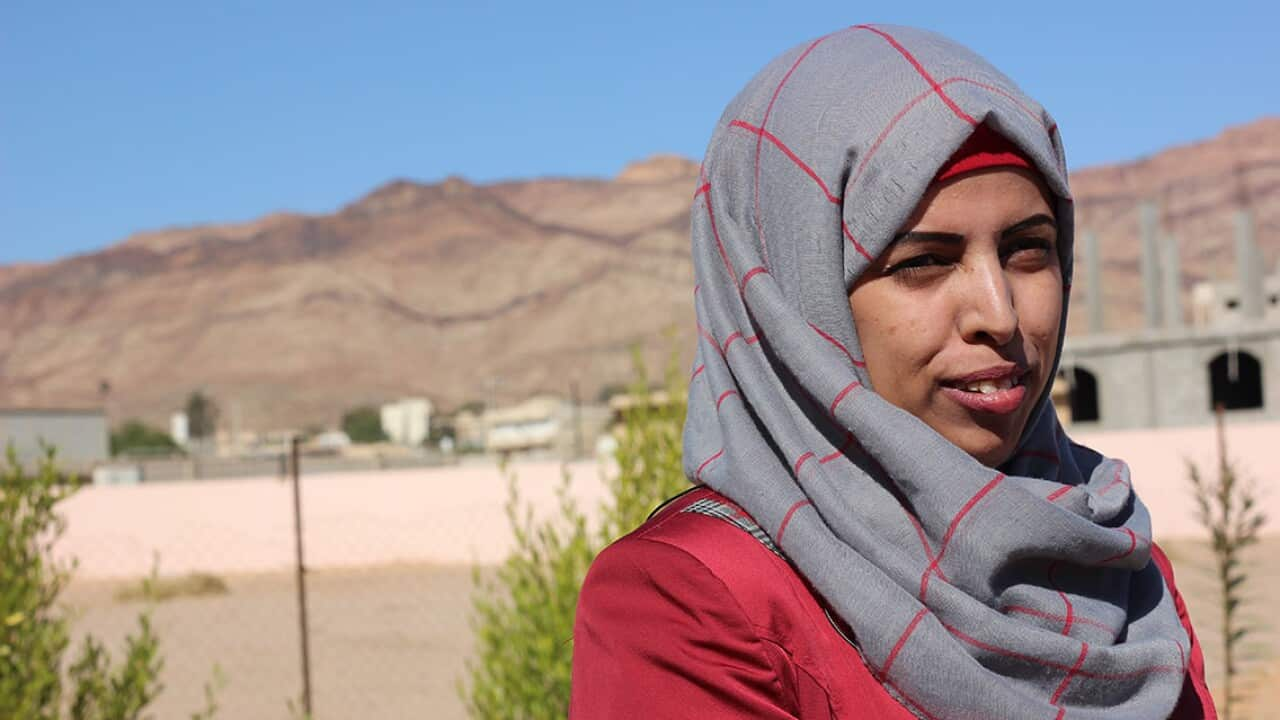Khwala al-Sheik is not your typical Jordanian woman. She has long peroxide blonde hair, visible eyelash extensions, manicured eyebrows and a fresh lick of shiny lipgloss. She is also the .
It is Saturday morning and this plumbing glamour queen is on the rooftop of a highrise building in Amman with two of her colleagues, Samia Ahmad Bourai and Aisha Umayri. They are doing maintenance for a major business in the area and have their hands deep in the grey water tanks.
Ahmad Bourai and Umayri are part of Khwala’s “all female 16-person plumbing co-op.”
“I am proud to be a plumber. My children are proud of me, my husband is proud of me and so are my neighbours,” says Samia. ‘It’s true we work hard and we get dirty but we get compensated. The money we earn affords us a good living. ” Aysha agrees, nodding her head.
“I am proud to be a plumber. My children are proud of me, my husband is proud of me and so are my neighbours,” says Samia.
But this was not always the case. “It was really difficult for me because I was the only one when I started,” she admits. “This idea was really difficult for society to be convinced and accept."
Sheik started plumbing 12 years ago. She impersonates the way people used to react to her: “No way! How come she can do the same as males do it?” With the help of her husband, an electrical engineer, she trained and worked with his company. After two years as an apprentice, she finally passed her plumbing licence and became the first female plumber in Jordan.
With the help of her husband, an electrical engineer, she trained and worked with his company. After two years as an apprentice, she finally passed her plumbing licence and became the first female plumber in Jordan.

Khawla al-Sheikh was the first Jordanian woman to take up plumbing as a profession. Image: Amelia Barry Source: Amelia Barry
After receiving her licence Sheik established a training program. “I am making a training course for plumbing and only for females,” she says.
Sheik continues to teach women every year how to become professional plumbers and has “taught over 200 ladies,” and “can give the licence for females who pass the exam.”
According to USAID, Jordan has one of the lowest rates of women’s workforce participation in the world at only . But today female plumbing has become a lucrative business.
Sheik explains that culturally, “society does not allow the males to come into the house when the husband is not around.”
Having female plumbers do the work mean the plumbing can be done without the need for the husband to be present and miss work.
“We are very busy,”Khwala says, “we are now sometimes busier than male plumbers’ and ‘we are paid more sometimes too!”
Khwala explains that culturally, “society does not allow the males to come into the house when the husband is not around.”
“Females in her house should be able to fix problems in her house’ says Samia Ahmad Bourai . “And why shouldn’t we earn money for it too?” adds Aisha Umayri.
This entrepreneur shows no signs of slowing. She’s already hosted a segment on a local TV show called ‘At home with Khwala’ and hints of more projects to come.
“It really was really difficult and I had a big challenge, but thank god my dream is now coming true. If I didn’t insist to be in this kind of field, it wouldn’t be possible to see more than one female plumber,” says Sheik.
As for the get up, Sheik shrugs, her recently blow dryed hair flicking behind her shoulders and says “why not?
“Why can’t females be plumbers and look good while they do it?”
The author travelled to Jordan as part of , a joint program between the University of Technology, Sydney and Swinburne University supported by the .
MORE FROM THE FOREIGN CORRESPONDENT STUDY TOUR

Waiting walls: exploring the street art scene of Amman


